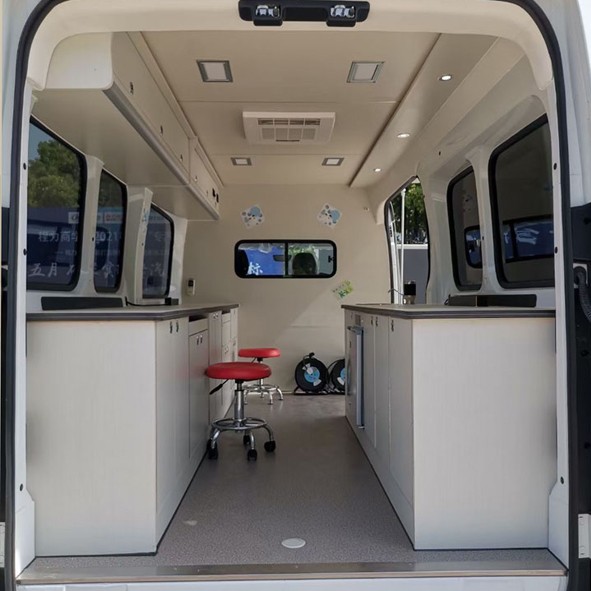Characteristics of Mobile vaccination vehicle
2024-07-04
Mobile vaccination vehicles are specialized units designed to facilitate vaccine administration in various settings. Here are the key characteristics typically associated with these vehicles:
1. Customization and Design:
- Mobile vaccination vehicles are custom-built or modified to accommodate vaccine administration activities. They may range in size and configuration, from vans to larger buses or trailers, depending on the intended use and capacity requirements.
2. Vaccine Storage and Handling:
- These vehicles are equipped with proper storage facilities to maintain the temperature and integrity of vaccines. This includes refrigerators or freezers capable of storing vaccines at recommended temperatures to ensure their efficacy.
3. Clinical Setup:
- Inside, they are outfitted with clinical setups including seating for patients, examination areas, vaccination stations, and medical waste disposal systems. This setup allows healthcare professionals to conduct vaccinations efficiently while ensuring patient safety and comfort.
4. Accessibility and Mobility:
- Mobile vaccination vehicles are designed for mobility, allowing them to reach diverse populations. They can access remote areas, rural communities, urban neighborhoods, workplaces, schools, and other locations where vaccination services are needed.
5. Staffing:
- They are staffed by qualified healthcare professionals, such as nurses, doctors, pharmacists, and administrative staff. These personnel are trained in vaccine administration protocols, patient care, and emergency response, ensuring safe and effective vaccine delivery.
6. Technology Integration:
- Many mobile vaccination vehicles are equipped with technology to support vaccination operations. This may include electronic medical records (EMR) systems for documenting vaccinations, communication tools for coordinating with healthcare providers and public health authorities, and possibly telehealth capabilities for remote consultations.
7. Community Engagement and Outreach:
- Mobile vaccination units engage in community outreach and education efforts to promote vaccine awareness, address concerns, and encourage vaccine uptake. They serve as a point of contact for public health information dissemination and may collaborate with community leaders and organizations to enhance outreach efforts.
8. Logistics and Operational Planning:
- Effective deployment of mobile vaccination vehicles involves meticulous logistical planning. This includes route mapping, scheduling of vaccination sessions, supply chain management for vaccines and medical supplies, and coordination with local authorities and stakeholders to optimize service delivery.
9. Adaptability and Emergency Response:
- These vehicles are adaptable to respond to public health emergencies, disease outbreaks, or urgent vaccination campaigns. They can be quickly deployed to areas in need of immediate vaccination coverage, contributing to disease prevention and control efforts.
10. Data Management and Reporting:
- Mobile vaccination units maintain accurate records of vaccinations administered, ensuring data integrity and compliance with reporting requirements. This information is crucial for monitoring vaccine coverage rates, identifying vaccination gaps, and informing public health decision-making.
Overall, mobile vaccination vehicles play a critical role in expanding access to vaccination services, enhancing community health resilience, and contributing to public health goals of disease prevention and control.



